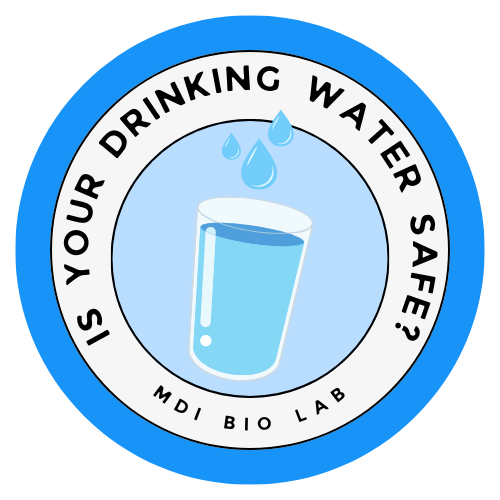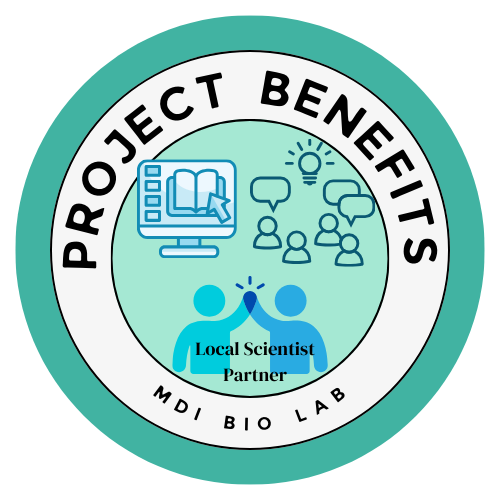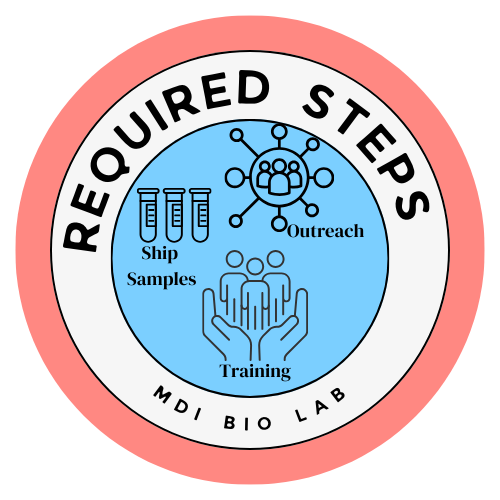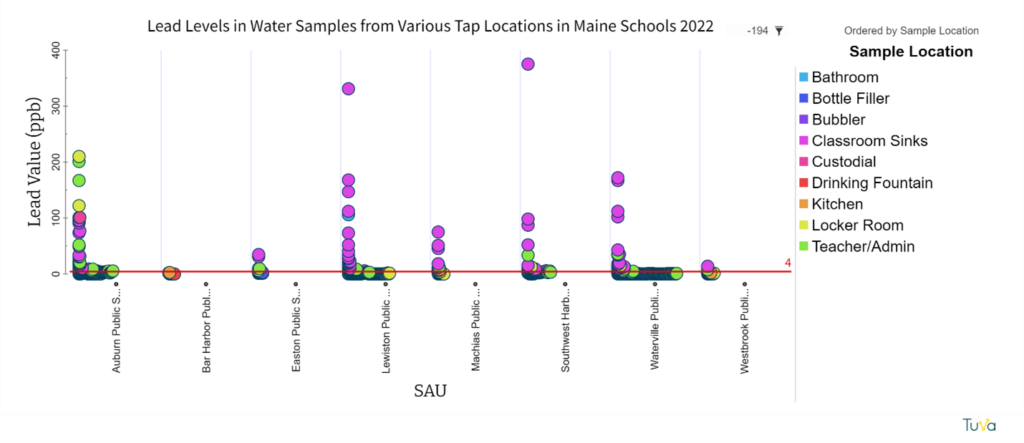
Welcome to our Drinking Water Project!
We’re thrilled to have you here! If you’re new to SEPA, this page is the perfect starting point to discover how you can be part of an exciting initiative that empowers teachers and students to become citizen scientists and advocates of positive change.
Project Overview
Our project, funded by a 5-year NIH Science Education Partnership Award, invites teachers and students to join us in analyzing drinking water samples for toxic metals like arsenic, lead, uranium, and manganese. Together, we can make a real difference in our communities!
Importance of Testing
Understanding the safety of our drinking water is crucial, whether it comes from private wells or public sources.
- For those on private water: Metals like arsenic, uranium, and manganese can naturally leach into wells from Maine and New Hampshire’s bedrock.
- For those on public water: Even with rigorous public water standards, older plumbing in homes can lead to contamination. Regular testing is essential to ensure safety for everyone.
Project Benefits

Teacher Training
- Topics Covered
- Engaging with citizen science in your classroom
- Understanding local, state, and national drinking water issues
- Practicing data management and analysis skills
- Learning effective scientific communication strategies for diverse audiences
Partnership with a Local Scientist
- You’ll receive dedicated support from a local scientist partner to enhance your teaching experience and project engagement.
Classroom Resources
- Access to the All About Arsenic+ website
Networking Opportunities
- Join meetups with fellow teachers in the program
- Participate in optional weekly meetings
- Attend our annual summer “DataCom Workshop” on the beautiful MDIBL campus

Required Steps
We believe in giving you the flexibility to incorporate this project into your curriculum in a way that works best for you. To formally engage, simply follow these steps:
- Attend training with fellow teachers and scientist partners.
- Introduce the project to your students, then assemble and distribute test kits.
- Ship samples for testing and share the results with students and their families.
- Analyze data with your students using Tuva (data literacy) software.
- Develop an outreach strategy to share your findings with your school and/or the wider community.
Funding Support
We’re here to support you every step of the way:
- Teacher Stipend: $1,000
- Classroom Award: $500 for materials, supplies, and travel
- Additional Coverage: Premium Tuva subscription and water sample analysis costs, plus room and board for annual training.
Teacher Success Story
Meet Janet Littlefield from Lewiston High School! Last year, with the support of her scientist partner, Larissa Williams from Bates College, Janet inspired her students to collect samples and analyze potential lead contamination in their drinking water. They tested water from their home taps and found no elevated lead levels—what a relief! Janet’s commitment to inclusivity shone through as she worked with translators to prepare permission forms and datasheets for her diverse classroom.
The Power of Data Analysis Tools
Check out the incredible work you and your students can achieve with Tuva! Below is a graph showcasing lead levels found in water samples from taps in Maine schools. This dataset is available for you to explore on our custom data platform in Tuva, offering endless opportunities for learning and engagement.

Thank you for joining us on this important journey. Together, we can empower our students to take action, understand their environment, and advocate for a safer future! We can’t wait to see what you’ll achieve!
Questions?
Contact Jane Disney at jdisney@mdibl.org.